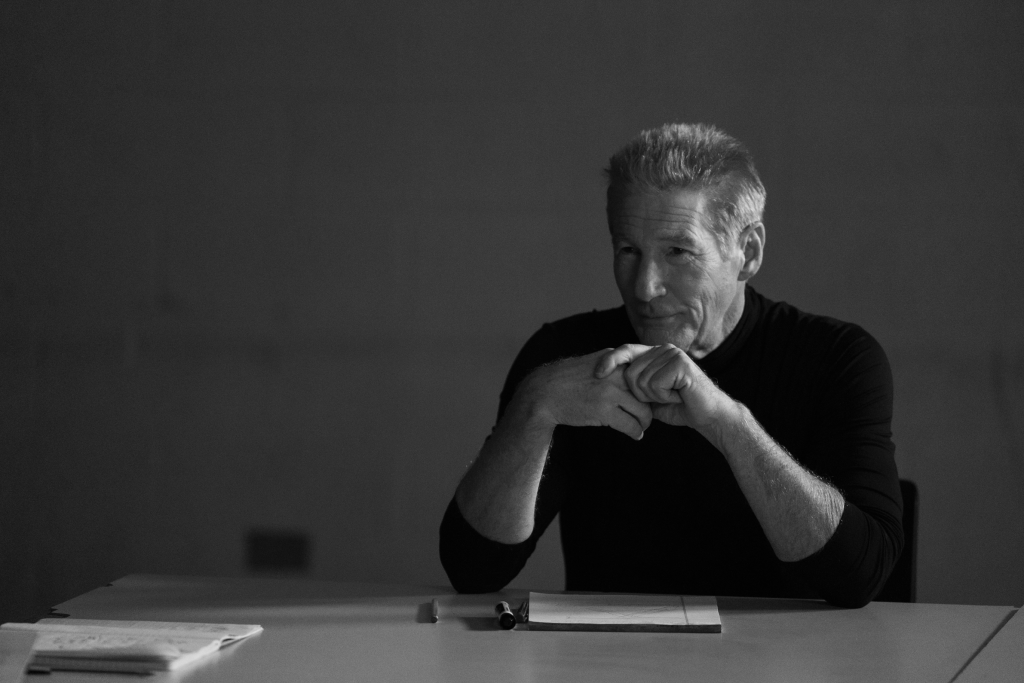Oh, Canada is an enthralling exploration of life, memory, and redemption crafted by the legendary Paul Schrader, showcasing the interplay between art and existential inquiry.
The Story So Far
In Oh, Canada, we find ourselves drawn into the introspective world of Leonard Fife, a dying documentarian portrayed by Richard Gere. As he grapples with his terminal cancer diagnosis, Fife reflects on his turbulent past during an interview with former students who have become successful documentarians in their own right. The film intricately weaves Fife’s memories from 1968 to 2023, exploring themes of regret, infidelity, and the quest for truth. This nonlinear narrative unfolds like a mosaic, inviting viewers to piece together the fragments of a life lived in the shadows of fame and personal failure. As Fife confronts his past, he must also navigate the complexities of his relationships, particularly with his wife, Emma, played by Uma Thurman, who struggles with the revelations that emerge during the interview.
A Deep Dive into the Review
Storyline and Themes
Paul Schrader’s Oh, Canada serves as a poignant examination of the human condition, reminiscent of his earlier works that delve into the struggles of solitary men. The film’s protagonist, Leonard Fife, embodies the archetype of a troubled artist, whose life is colored by introspection and regret. Through Fife’s journey, Schrader reaffirms his fascination with the transcendental style in cinema, exploring how art and spirituality intertwine.
Character Performances
Richard Gere delivers a masterful performance as Leonard Fife, capturing the essence of a man who is both reflective and regretful. His portrayal evokes empathy as he navigates the complexities of his past, revealing layers of a character who is far from perfect. Uma Thurman’s role as Emma is equally compelling; her emotional turmoil and protective instincts create a palpable tension that enhances the narrative. The chemistry between Gere and Thurman adds depth to their characters’ relationship, making their interactions both intimate and fraught with conflict.
Direction and Cinematic Techniques
Schrader’s direction shines through in Oh, Canada, employing a nonlinear narrative structure that mirrors the fragmented nature of memory. The film artfully shifts between color and black-and-white scenes, symbolizing the distinctions between past and present. This stylistic choice not only enhances the visual storytelling but also invites viewers to ponder the reliability of memory itself. Additionally, Schrader collaborates with cinematographer Andrew Wonder to manipulate aspect ratios, creating a visual representation of Fife’s constricted present compared to his expansive past.
Emotional Depth and Philosophical Undertones
At its core, Oh, Canada is a meditation on mortality and the human experience. Fife’s reflections on his life, punctuated by moments of clarity and confusion, compel the audience to confront their own existential questions. The film invites viewers to consider the weight of choices and the shadows they cast over one’s legacy. As Fife states, “when you have no future, all you have left is your past,” a sentiment that resonates deeply throughout the narrative.
Conclusion
In conclusion, Oh, Canada stands as a testament to Paul Schrader’s unparalleled ability to weave complex emotional narratives. With rich performances, a thought-provoking storyline, and masterful direction, this film serves as a profound exploration of life’s intricacies and the quest for redemption. As Schrader’s potential final chapter unfolds, audiences are left to reflect on the legacies we create and the truths we confront.
Frequently Asked Questions
1. What is the central theme of Oh, Canada?
The film explores themes of memory, regret, and the quest for redemption through the life of Leonard Fife, a dying documentarian.
2. Who directed Oh, Canada?
Oh, Canada is directed by Paul Schrader, a renowned filmmaker known for his explorations of the human condition.
3. What kind of narrative style does the film use?
The film employs a nonlinear narrative, reflecting the fragmented nature of memory and experience.
4. Who stars in the leading roles?
Richard Gere plays Leonard Fife, with Uma Thurman portraying his wife, Emma. The cast also includes Michael Imperioli and Jacob Elordi.
5. How does the film visually represent its themes?
The film uses color and black-and-white sequences, as well as varying aspect ratios, to depict the contrast between Fife’s past and present.
6. Is Oh, Canada based on a book?
Yes, it is based on the novel Foregone by Russell Banks, who also authored Affliction.
7. What can viewers expect from the film’s emotional tone?
Viewers can expect a deeply emotional tone, as the film grapples with serious themes of mortality, infidelity, and introspection.
8. When was Oh, Canada released?
Oh, Canada opens exclusively in theaters today, via Kino Lorber.
9. How does the film’s structure affect its storytelling?
The nonlinear structure allows for a more complex exploration of Fife’s character, emphasizing the intricacies of memory and the impact of past events on the present.
10. What makes Oh, Canada significant in Schrader’s filmography?
It represents a culmination of Schrader’s thematic explorations throughout his career, focusing on existential questions and the nature of storytelling itself.
Tags: Paul Schrader, Oh Canada, Richard Gere, Uma Thurman, Film Review, Existential Cinema, Memory, Redemption, Film Analysis

